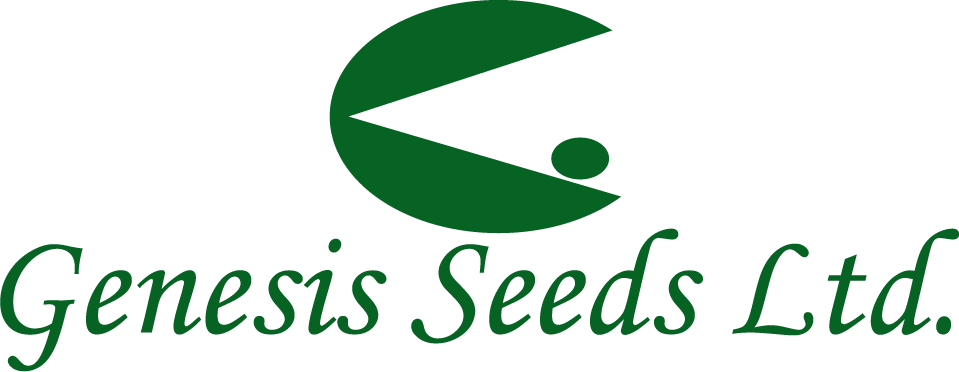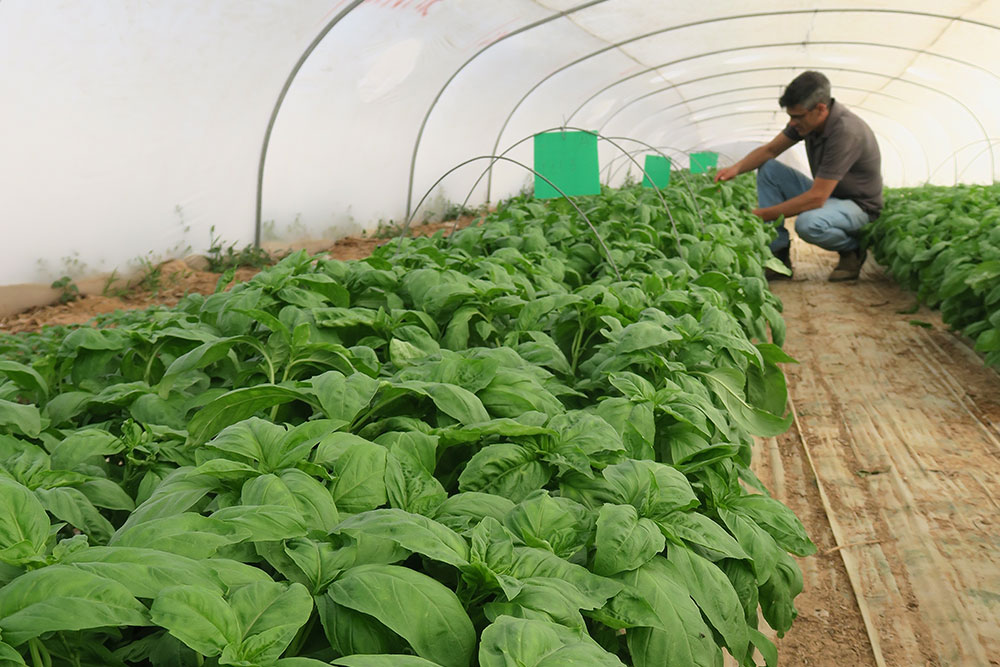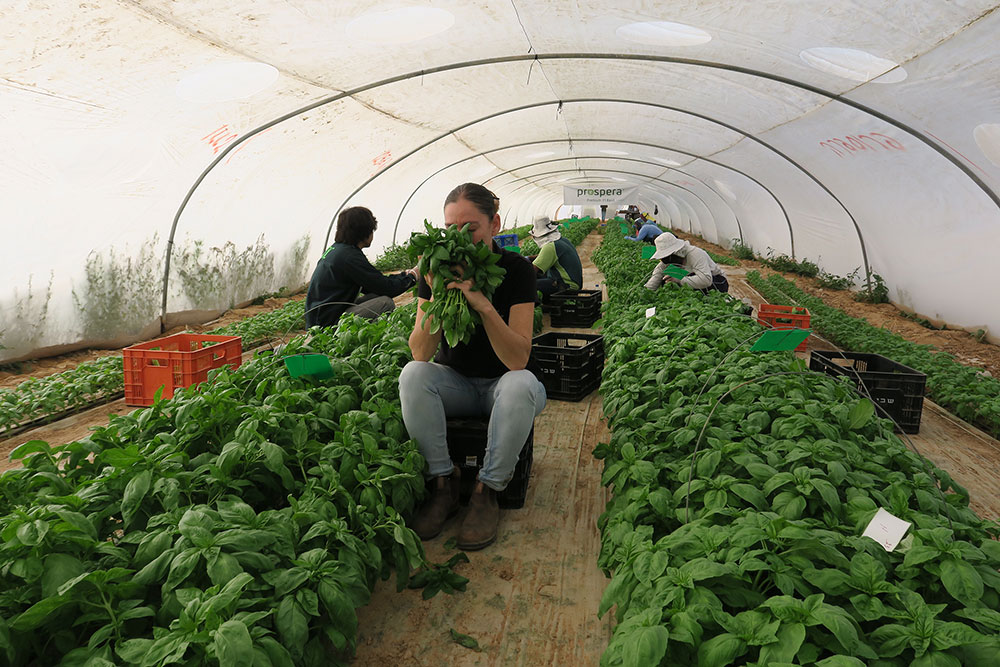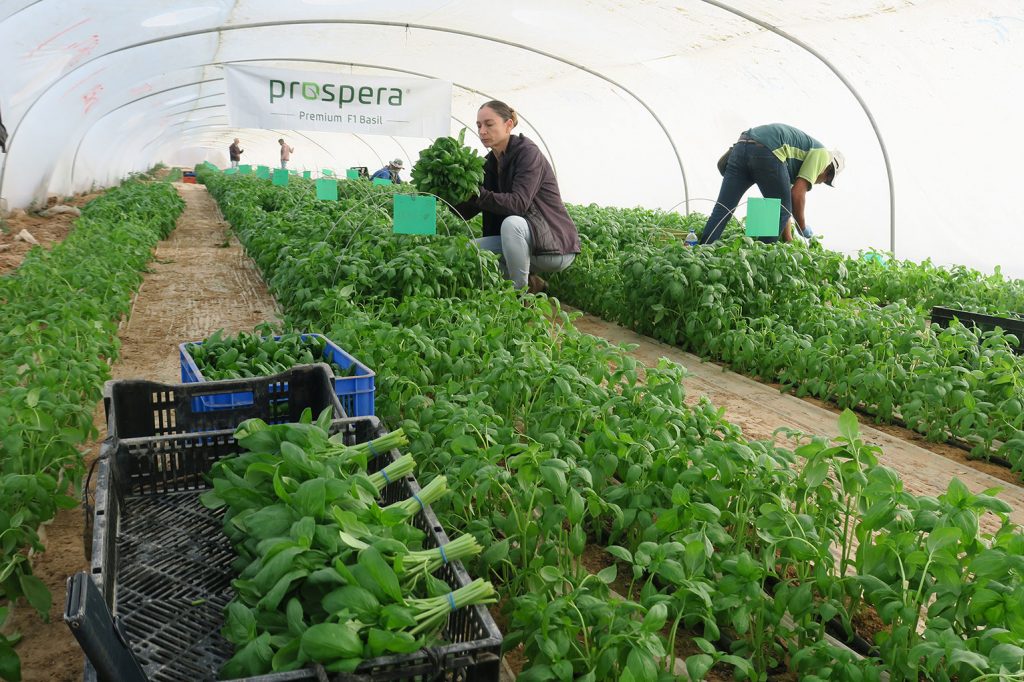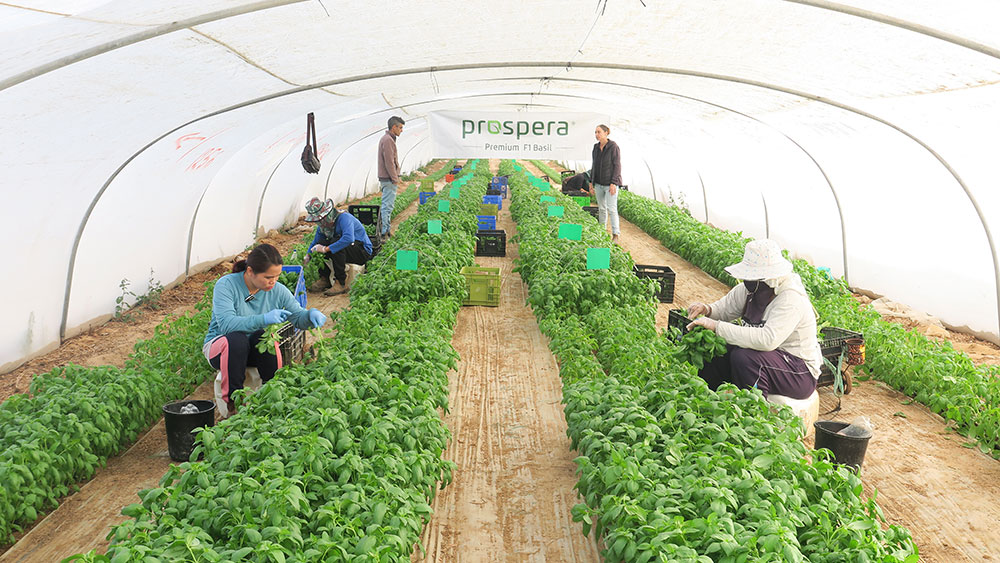Cultivating Harmony: A Deep Dive into Organic Farming
Cultivating Harmony: A Deep Dive into Organic Farming
Exploring Genesis Seeds R&D Fields: Ashalim Adventure with Agronomist Ehud

In the heart of the Negev Desert, amidst the rugged terrain of Ashalim, lies a sanctuary of sustainable agriculture – Genesis Seeds. Renowned worldwide for their resilient basil seeds and steadfast commitment to organic farming, Genesis Seeds embodies a harmonious relationship between humanity and nature. Founded in 1996 by the visionary Dr. Itzik Nir, the company embarked on an organic journey at a time when the concept was still in its infancy. Today, against the backdrop of escalating health concerns, environmental crises, and a burgeoning demand for organic produce, Genesis Seeds stands as a beacon of sustainability, illuminating a path toward a greener, healthier future.
As we embark on our journey through the verdant fields of Ashalim, we are greeted by Ehud, the agronomist whose expertise and passion for organic cultivation are palpable. With 18 years of hands-on experience, Ehud serves as our guide, unraveling the intricate tapestry of sustainable farming practices that define Genesis Seeds.

The Challenges
Soil
The clay-rich, saline soil of Ashalim presents a formidable challenge for farmers. However, through careful water management and a deep understanding of each crop’s needs, Genesis Seeds has transformed this seemingly inhospitable land into a fertile oasis.
Ehud demonstrates the transformative power of targeted watering, regenerating artichoke plants, and mitigating salinity stress, showcasing the importance of adaptability in organic farming.
Ehud addresses soil disinfection challenges by rotating with a mustard-type crop for natural biofumigation. He supplements soil with treated organic chicken manure to enrich organic matter and uses biological additives to combat nematodes. These methods enable intensive organic cropping, overcoming typical limitations.
Fertilizing
In the realm of organic farming, synthetic fertilizers are off-limits. As a result of these restrictions, Ehud developed a remarkable, innovative solution: a homemade fertilizer derived from the Extraction of compost, which enriches the soil with biological materials and circulates them in the irrigation system. This organic alternative not only enriches the soil but also acts as a natural defense against harmful nematodes, showcasing the company’s ingenuity in navigating the constraints of organic agriculture.
Weed Management
Weeds, the bane of every farmer’s existence, are managed through a combination of manual labor and preemptive measures. Genesis Seeds implements innovative strategies such as crop rotation and the use of plastic mulch film to suppress weed growth while simultaneously conserving moisture and reducing irrigation demands. This proactive approach underscores the company’s dedication to sustainable weed control practices.
Manpower Efficiency
Organic farming demands meticulous labor management, a challenge that Genesis Seeds addresses through innovative software solutions. By optimizing task allocation, the company ensures operational efficiency while minimizing labor costs.
Through the implementation of cutting-edge management software, Genesis Seeds maximizes workforce productivity, ensuring timely completion of tasks across diverse crops Using soil testing and historical crop and disease data, we can make efficient production decisions.
Pest Management
Without relying on chemical pesticides, organic pest and disease management requires continuous vigilance. Ehud underscores the significance of daily field monitoring and prompt action to deter potential threats. He tirelessly explores natural remedies to combat pests like leaf aphids. As a substitute for conventional products, he employs natural extracts and applies them to the plants. For instance, he extracts substances secreted by lettuce plants at specific phenological stages for this purpose.
Compost
Balanced composting practices play a pivotal role in maintaining soil fertility at Genesis Seeds.
The company recently acquired a mulch shredder, a valuable addition enabling the efficient recycling of plant material right on the property. Ehud skillfully blends fresh and dry material in the shredder to achieve the optimal ratio of wet and dry components. This process not only eliminates the need for off-site disposal but also mitigates health risks and enhances soil quality, fostering better aeration and nutrient enrichment.
Pollination
Strategic placement of beehives and innovative pollination techniques optimize seed yield at Genesis Seeds. These eco-friendly practices not only enhance crop productivity but also promote biodiversity. Ehud “Since we don’t rely on other beekeepers’ bees and there are no indigenous bees in the area, we maintain beehives on-site. The bees subsist on their honey as in nature, and their pollination services benefit the crops without human intervention”. By strategically placing beehives throughout the fields, Ehud ensures efficient pollination, resulting in higher yields and healthier ecosystems.
Isolation
Ashalim’s unique environmental conditions, characterized by isolation and arid climate, present both challenges and opportunities for sustainable agriculture. Through strategic planning and innovative solutions, Genesis Seeds minimizes environmental impact while maximizing productivity.
By leveraging Ashalim’s isolation to its advantage, Genesis Seeds minimizes pest pressures and reduces the risk of cross-contamination, fostering a healthier crop environment.
A wonderful tip for organic growers! Approaching each plant with fresh eyes and an open mind can lead to discoveries and innovations that traditional methods might overlook. Organic growing often involves working within limitations, which can spark creativity and ingenuity. Being curious, experimental, and willing to try new things can not only benefit the plants but also deepen your understanding and connection with them. Thanks for sharing such insightful advice!
Through innovation, dedication, and a deep reverence for the land, Genesis Seeds exemplifies the transformative power of organic agriculture, paving the way for a greener, more sustainable future.
